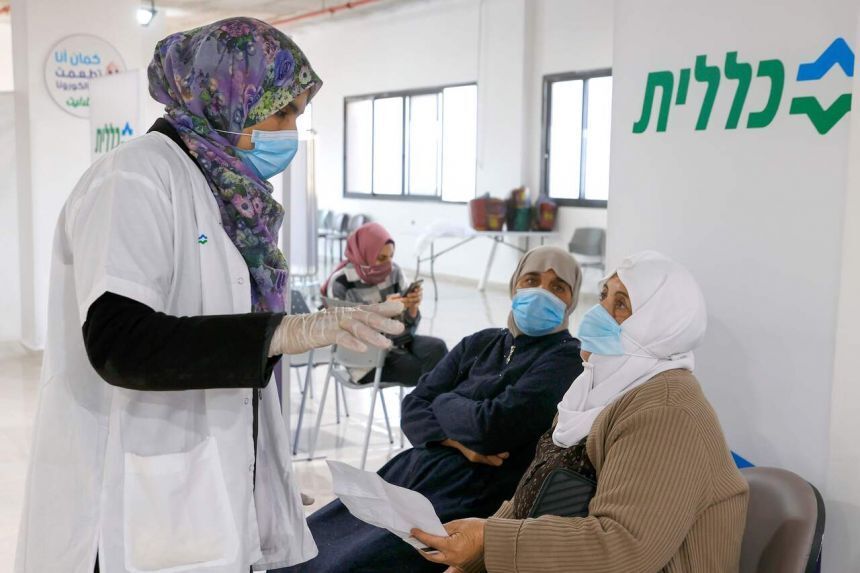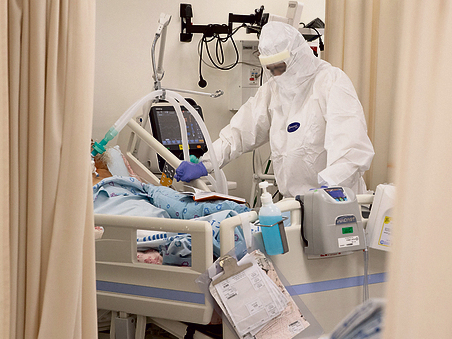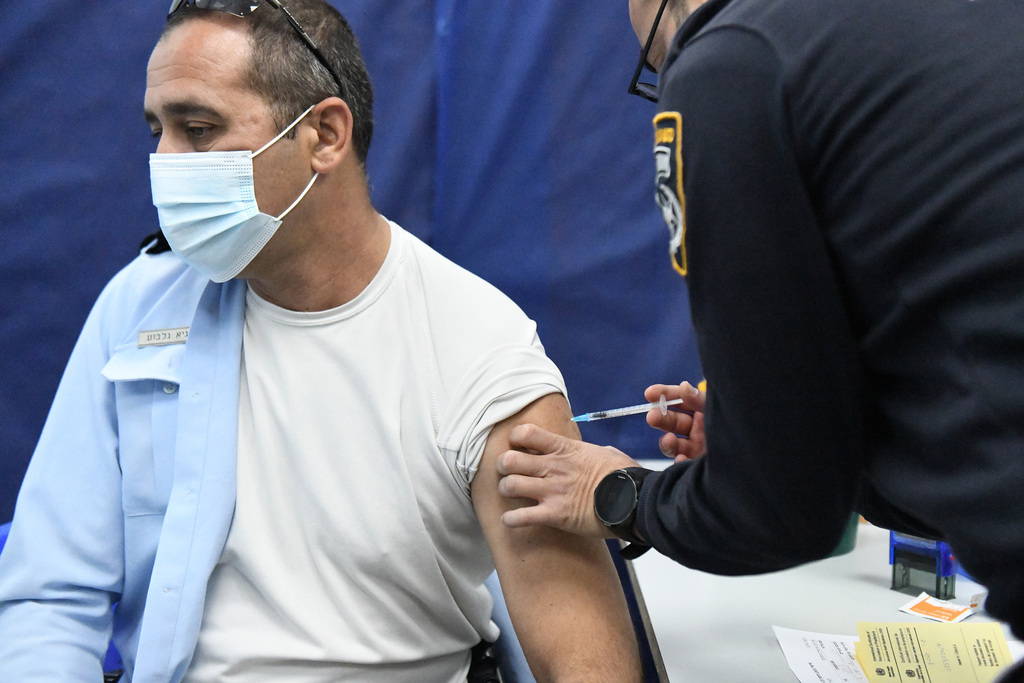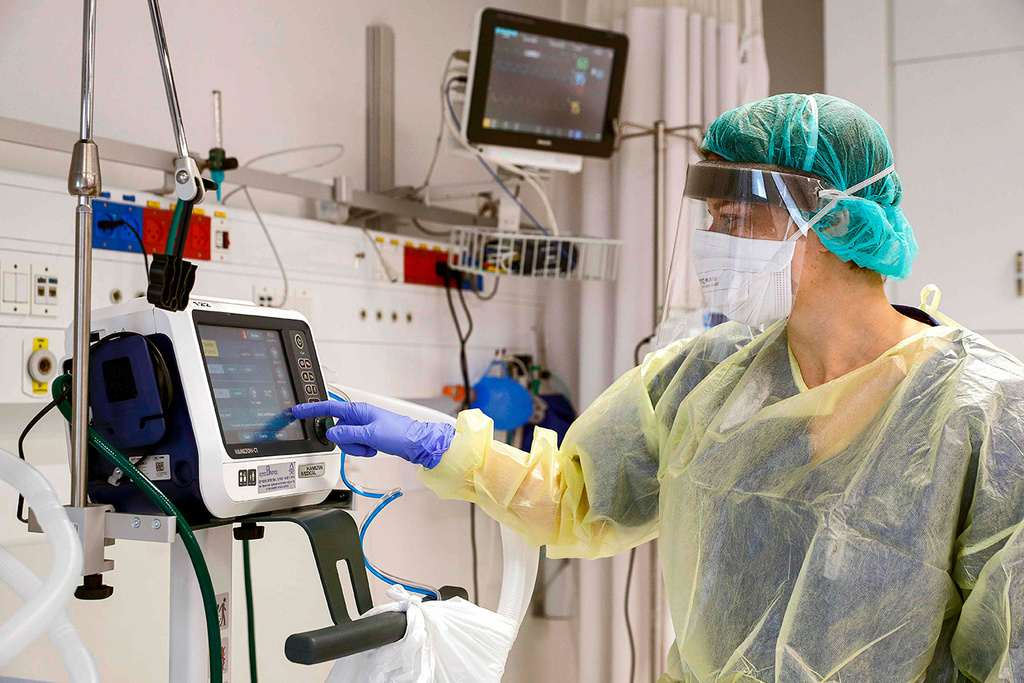As new coronavirus cases continue to drop, some Israel's hospitals begin closing their dedicated COVID-19 wards, which have recently started to empty out.
Israel launched its high-paced vaccination drive in December and has so far fully vaccinated over half of the population, which prompted a decrease in coronavirus infection rate and basic reproduction number.
Only a short while ago, convoys of ambulances transferring virus patients had to wait hours outside medical centers until an ICU bed could be made available and the staff were able to take them in. The pressure and the workload kept climbing higher and higher, leaving medical teams nearly hopeless.
It has been merely a few months since then, but now the reality is drastically different, with hospitals across the country reporting they are barely admitting new patients in their coronavirus wards.
According to data obtained by Ynet, on Tuesday, no new patients were admitted to Haifa's Rambam Health Care Campus, in contrast to several months prior when on average of 15 were arriving on a daily basis. Kfar Sava's Meir Medical Center also reported no new patients on Tuesday.
Sheba Medical Center in Ramat Gan and Petah Tikva's Rabin Medical Center each reported that only one new patient was admitted Tuesday, in contrast to up to 30 new patients who were being admitted daily just a few months ago.
Jerusalem's Hadassah Medical Center, which throughout the pandemic has been one of Israel's busiest hospitals and at one point had over 140 coronavirus patients at its COVID ward, reported Monday that only three new patients were admitted that day.
According to the latest Health Ministry data, hospitals are currently treating 385 serious coronavirus cases, in contrast to almost 1,200 patients who were hospitalized back in January.
"As we moved forward with the vaccination campaign - the number of hospitalizations went down," said Dr. Maor Maman, assistant director for Rabin Medical Center and head of its coronavirus department.
"At all-time high, we had two full dedicated wards, an ICU and a maternity ward. Now we dropped to about five patients. Not that long ago, the maternity ward saw two to four patients admitted daily, and now we get to about one a week and they are always unvaccinated. The correlation between the vaccination campaign and the drop in hospitalizations is significant."
Doctors at Ashdod's Assuta Hospital, where also no new patients were admitted Tuesday, are starting to get used to the new reality as well. "We reduced the number of ICU beds in dedicated wards to single digits," said Dr. Hagit Sarbagil-Maman, deputy director for the hospital.
"However, we do see a very large number of non-COVID patients, but this is normal since there is always an uptick around Passover, a sign that things are truly going back to normal. We are preparing to return the hospital to normal activity after the holiday, with medical teams returning to their previous posts, but still maintaining a dedicated coronavirus staff."
Prof. Masad Barhoum, director of Galilee Medical Center and a member of the advisory board for combating coronavirus in the Arab sector, said the drop in morbidity has been slower in northern Israel, primarily in Arab towns.
"There has been a gradual decline in hospitalizations, but it is more moderate than in other hospitals," he said.
"The vaccination rate in the Galilee region is lower, especially in the Arab sector, which is the reason for a welcomed, yet slow decline [in cases] in the area. The vaccines have brought a drastic drop, but the number of ventilated patients is still rather high."
4 View gallery


A healthcare worker speaks to an Arab Israeli woman before giving her a coronvirus vaccine
(Photo: AFP)
Barhoum said that his hospital is currently treating 21 patients, all unvaccinated, compared to a peak of 115.
"The situation then was very difficult and we lacked manpower. Now, that hospitalizations are down, we can return to other fields to normal operations like rehabilitation and geriatrics, which we closed down due to more staff being needed at the ICUs," he said.
Barhoum said the hospital will maintain a dedicated coronavirus ICU and a general care ward, adding that he hopes to soon minimize it to only one unit on the condition that the number of hospitalized patients remains below 15.




